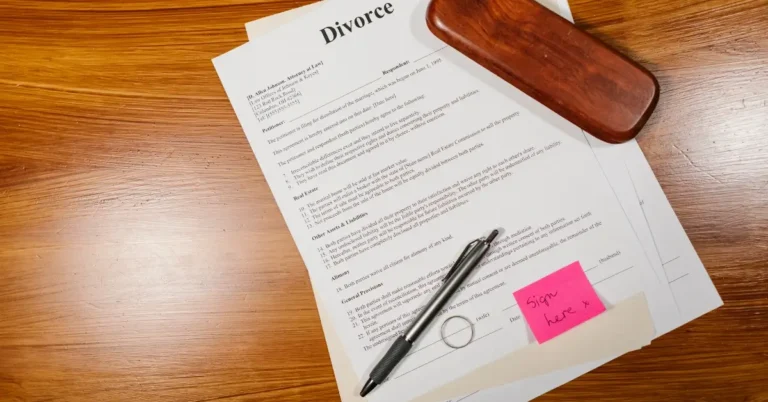Key Takeaways:
- When you die without a will in Ontario, the Succession Law Reform Act determines inheritance through a rigid hierarchy, not your personal wishes
- Surviving spouses receive a $350,000 preferential share (as of March 2021) before sharing with children; they don’t automatically inherit everything
- Common-law partners have zero automatic inheritance rights under Ontario law, regardless of relationship length
- Minor children’s inheritances are held by the court until age 18, creating financial hardship for surviving parents who can’t access funds for the children’s care
- Step-children who weren’t legally adopted inherit nothing, even if raised by the deceased for years
- Estate administration without a will costs significantly more in legal fees, takes longer, and often requires posting a bond worth double the estate value
- Business owners risk operational disruption and forced partnership dissolutions when intestacy laws distribute shares to unprepared heirs
Most people assume they understand how inheritance works when someone dies without a will. They believe the surviving spouse gets everything, or that the government takes it all. Both assumptions are dangerously wrong, and these misconceptions cost Ontario families millions of dollars every year.
When you die without a will in Ontario, you’re not just leaving your family to grieve – you’re forcing them to navigate a complex legal system that doesn’t know your wishes, your family dynamics, or what really matters to the people you love most. The government gets to decide who inherits your life’s work, and the results often shock families who assumed they understood how inheritance works.
As a family lawyer who has practiced in Ontario since founding Nussbaum Law in 2012, I’ve seen too many families torn apart by intestacy laws that seem fair on paper but create devastating consequences in real life. Here’s everything you need to know about who inherits without a will in Ontario – and why this knowledge could save your family thousands of dollars and years of heartbreak.
The Hard Truth About Dying Without a Will
Most people believe that when someone dies without a will, their spouse automatically inherits everything. Others think the government takes it all. Both assumptions are incorrect, and these misconceptions result in Ontario families losing millions of dollars every year.
When someone dies without a will in Ontario, they’ve died “intestate,” and their estate is distributed according to the Succession Law Reform Act, a rigid set of rules that treats every family the same, regardless of their unique circumstances. The consequences of dying interstate often shock families who assumed they understood how inheritance works.
These laws don’t take into account your family dynamics, your promises to loved ones, or your personal wishes. They follow a strict hierarchy that often produces results no one in the family wants.
Here’s what really happens: over 51% of Canadians don’t have a will, which means thousands of Ontario families face intestacy laws every year. The process is more complex, more expensive, and more emotionally devastating than having a will. Your family doesn’t just lose you – they lose control over how your legacy is preserved and distributed.
Understanding Ontario’s Intestacy Laws
Ontario’s Succession Law Reform Act governs the distribution of estates when someone dies without a will. These laws establish a strict hierarchy of inheritance, leaving no room for personal preferences or family circumstances.
The Hierarchy of Inheritance
The law recognizes only specific relationships in a predetermined order:
- Married spouse (common-law partners are excluded)
- Children (biological and legally adopted)
- Parents
- Siblings
- Nieces and nephews
- Other blood relatives (by degree of relationship)
- Ontario government (if no relatives exist)
This hierarchy determines who inherits, but the actual distribution depends on which family members survive the deceased.
The Preferential Share System
One of the most misunderstood aspects of intestacy law is the “preferential share” – the amount a surviving spouse receives before other family members get anything. As of March 1, 2021, this amount increased from $200,000 to $350,000 for estates of people who died on or after that date.
This change affects thousands of families, but many don’t understand how it works or what it means for their specific situation.
Who Actually Inherits: The Real-World Scenarios
Let me walk you through exactly what happens in each family situation, because the reality is more complex than most people realize.
Scenario 1: Married Spouse, No Children
The Law: The surviving spouse inherits the entire estate.
The Reality: This is the only scenario where intestacy laws align with most people’s expectations. The surviving spouse gets everything, but only if they were legally married – common-law partners get nothing.
Scenario 2: Married Spouse and Children
The Law: The spouse gets the first $350,000, then the remainder is divided between the spouse and children.
The Reality: This creates problems most families never anticipate.
If there’s one child: The spouse gets $350,000, then the spouse and child each get 50% of the remainder.
Example: $500,000 estate
- Spouse gets: $350,000 + $75,000 (50% of remaining $150,000) = $425,000
- Child gets: $75,000
If there are multiple children: The spouse gets $350,000, then the spouse gets 1/3 and the children share 2/3 of the remainder.
Example: $500,000 estate with three children
- Spouse gets: $350,000 + $50,000 (1/3 of remaining $150,000) = $400,000
- Each child gets: $33,333 (sharing 2/3 of $150,000)
Scenario 3: Children, No Spouse
The Law: Children inherit everything equally.
The Reality: If any child died before the parent, that child’s children (grandchildren) inherit their parent’s share.
Scenario 4: No Spouse, No Children
The Law: Parents inherit everything equally.
The Reality: If both parents are dead, the estate goes to siblings, then to nieces and nephews, then to more distant relatives.
Scenario 5: No Family Members
The Law: The estate “escheats” to the Ontario government.
The Reality: This rarely happens, but when it does, everything goes to the province.
The Common-Law Partner Tragedy
One of the most devastating aspects of Ontario’s intestacy laws is how they treat common-law partners. Despite what many people believe, common-law spouses have no automatic inheritance rights under the Succession Law Reform Act.
What This Means in Practice
A common-law partner could live with someone for 20 years, own a home together, raise children together, and still inherit nothing if their partner dies without a will. The estate would go to the deceased’s blood relatives – parents, siblings, or even distant relatives – while the surviving partner, who shared a life with the deceased, gets nothing.
The Only Options for Common-Law Partners
- Dependent’s Support Claim: They can apply to the court for support from the estate, but this requires proving financial dependency and going through expensive legal proceedings.
- Joint Assets: Any assets owned jointly (like a home or bank account) would pass to the surviving partner, but only if they were properly structured as joint tenancy with right of survivorship.
- Designated Beneficiaries: RRSPs, RRIFs, TFSAs, and life insurance policies with the partner named as beneficiary would pass directly to them.
The Emotional and Financial Devastation
I’ve represented common-law partners who discovered, in their moment of greatest grief, that they had no legal right to their partner’s estate. They faced the choice between expensive legal battles against their partner’s family or accepting financial devastation during their most vulnerable time.
How Minor Children Are Affected
When children inherit from an intestate estate, the law treats them the same regardless of their age, but the practical implications are vastly different for minor children.
The Trust Problem
In Ontario, if there’s no will with trust provisions for minors, the inheritance for minor children is typically paid into court, and the child receives it when they turn 18. This creates several problems:
- No Guidance: The money sits in court-controlled accounts with minimal growth potential
- Lump Sum at 18: Children receive potentially large amounts at an age when they’re rarely equipped to handle significant wealth
- No Flexibility: The court cannot adapt the distribution to the child’s specific needs or circumstances
The Surviving Parent’s Dilemma
A surviving parent might receive less than half the estate while being responsible for raising the children. Meanwhile, the children’s inheritance sits inaccessible until they reach adulthood, potentially creating financial hardship for the very people trying to care for them.
The Estate Administration Challenge
When someone dies without a will, the estate administration process becomes significantly more complex and expensive.
Appointing an Estate Trustee
Without a named executor, someone must apply to the court to become the estate trustee. The law establishes priority:
- Spouse (including common-law partners for administration purposes)
- Children
- Parents
- Siblings
- Other relatives
The Bonding Requirement
The estate trustee without a will must typically post a bond equal to double the value of the estate, though courts may waive this requirement. This bond ensures the trustee fulfills their duties properly.
Additional Complications
- Extended Timeline: Probate without a will is more complex and time-consuming
- Notice Requirements: All potential beneficiaries must be notified
- Consent Gathering: The trustee must obtain consents from beneficiaries
- Court Oversight: More court involvement means higher costs and longer delays
The Financial Cost of Intestacy
Dying without a will doesn’t just affect who inherits – it dramatically increases the costs of estate administration.
Higher Probate Costs
Ontario charges Estate Administration Tax (probate fees) of 1.5% on estates over $50,000. While this rate is the same whether there’s a will or not, intestate estates often require more court involvement, increasing associated legal costs.
Legal Expenses
Families typically spend significantly more on legal fees for intestate estates due to:
- Complex beneficiary identification
- Potential family disputes
- Court applications and hearings
- Ongoing court supervision
Lost Opportunities
Without a will, estates cannot take advantage of:
- Tax Planning: Strategies to minimize capital gains and other taxes
- Charitable Donations: Tax credits for charitable bequests
- Trust Structures: Ongoing tax advantages for beneficiaries
- Business Succession: Smooth transfer of business interests
Why Intestacy Laws Exist
Understanding why these laws exist helps explain their limitations. Ontario’s intestacy laws aim to:
- Provide Certainty: Ensure there’s always a clear plan for asset distribution
- Protect Family: Prioritize closest relatives who likely depended on the deceased
- Reflect Social Norms: Align with general expectations about family inheritance
- Prevent Disputes: Reduce arguments by establishing clear rules
However, these laws were designed for “typical” families and can’t account for modern family complexity, personal relationships, or individual circumstances.
The Blended Family Nightmare
Intestacy laws create particular problems for blended families, which are increasingly common in Ontario.
Step-Children Have No Rights
Under intestacy laws, step-children who weren’t legally adopted have no inheritance rights. A child who lived with and was supported by a step-parent for years could inherit nothing if that step-parent dies without a will.
Competing Claims
When someone with children from a previous relationship dies intestate, their current spouse must share the estate with children who may not have lived with them. This can create:
- Financial hardship for the surviving spouse
- Resentment between step-families
- Legal battles over estate distribution
The Ex-Spouse Factor
If someone dies while separated but not divorced, the estranged spouse might still inherit under intestacy laws, depending on the timing and circumstances of the separation.
Business Owners and Intestacy
Business owners face unique challenges when they die without a will.
Partnership Complications
Without a will addressing business succession, partnerships may:
- Dissolve automatically upon a partner’s death
- Force buyouts at inappropriate times
- Create disputes among surviving partners and heirs
Corporate Shares
Business shares pass to heirs under intestacy laws, but this can:
- Disrupt operations if heirs aren’t involved in the business
- Create tax liabilities without proper planning
- Threaten business continuity if multiple heirs disagree
Professional Practices
Doctors, lawyers, and other professionals may find their practices significantly impacted by intestacy laws that don’t account for professional regulations and licensing requirements.
The Emotional Toll on Families
Beyond the legal and financial complications, intestacy creates emotional devastation for grieving families.
Loss of Control
Families lose the ability to honor the deceased’s wishes because those wishes were never legally documented. This can create:
- Guilt among beneficiaries who receive more than they feel they deserve
- Resentment among those who receive less than they expected
- Confusion about what the deceased would have wanted
Family Conflicts
The rigid application of intestacy laws often ignores family dynamics, creating conflicts between:
- Siblings who contributed differently to caring for parents
- Spouses and children competing for limited resources
- Extended family members with different needs and expectations
The Stress of Administration
Without a chosen executor, family members must navigate complex legal processes while grieving, often leading to:
- Delays in settling the estate
- Increased expenses for legal and professional help
- Ongoing stress during an already difficult time
Protecting Your Family: The Alternative
After seeing the devastation intestacy laws can cause, I always tell clients that creating a will is one of the most important gifts they can give their family.
What a Will Accomplishes
A properly drafted will allows you to:
- Choose your beneficiaries regardless of legal relationships
- Protect common-law partners through specific bequests
- Provide for step-children who have no intestacy rights
- Create trusts for minor children with flexible terms
- Name guardians for your children
- Minimize taxes through strategic planning
- Support charities you care about
- Ensure business continuity through succession planning
The Peace of Mind Factor
Beyond the legal and financial benefits, having a will provides peace of mind knowing that:
- Your wishes will be respected
- Your family won’t face unnecessary legal battles
- Your loved ones will be protected according to your values
- Your legacy will be preserved as you intended
Taking Action: Your Next Steps
If you don’t have a will, every day you delay is another day your family remains vulnerable to intestacy laws. Here’s what you need to do:
Step 1: Understand Your Risk
Consider your family situation:
- Are you married or common-law?
- Do you have children from current or previous relationships?
- Do you own a business or professional practice?
- Are there people you want to inherit who wouldn’t under intestacy laws?
Step 2: Gather Your Information
Make a list of:
- All your assets and their approximate values
- Your debts and obligations
- Family members and their relationships to you
- People you want to benefit from your estate
- Someone you trust to act as executor
Step 3: Get Professional Help
Estate planning is too important to leave to chance. An experienced estate lawyer can:
- Explain how intestacy laws would affect your specific situation
- Draft a will that accomplishes your goals
- Coordinate with tax and financial professionals
- Ensure your documents meet all legal requirements
Step 4: Communicate with Your Family
Once you have a will:
- Let your executor know about their role
- Discuss your plans with family members
- Keep your documents updated as circumstances change
- Review your plan regularly with professional guidance
Your Family’s Future Is in Your Hands
Who inherits without a will in Ontario isn’t a mystery – it’s determined by rigid laws that treat every family the same, regardless of their unique circumstances. These laws prioritize legal relationships over personal bonds, create financial hardship for surviving spouses, and can tear families apart during their most vulnerable time.
The stories I’ve shared aren’t hypothetical – they’re real families who thought they understood how inheritance worked until they faced the harsh reality of intestacy laws. The three siblings fighting over their father’s watch collection? They spent more on legal fees than the entire collection was worth. The common-law partner who lost her home? She had to start over financially at age 60 after 15 years of building a life with her partner.
But here’s the empowering truth: you have the power to protect your family from these consequences. Creating a will doesn’t just determine who inherits your assets – it’s an act of love that protects your family from financial hardship, legal battles, and the emotional devastation of watching the government make decisions that should be yours.
Every family is unique, and your estate plan should reflect your values, your relationships, and your wishes. Don’t let Ontario’s intestacy laws write your family’s story. Take control of your legacy today, because the people you love most deserve better than the rigid, impersonal application of laws that don’t know your heart.
The choice is yours: let the government decide who inherits your life’s work, or take action to ensure your family is protected according to your wishes. Your family’s future depends on what you do today.










